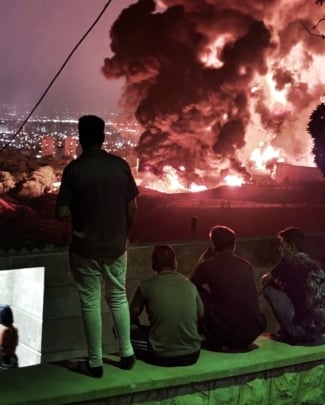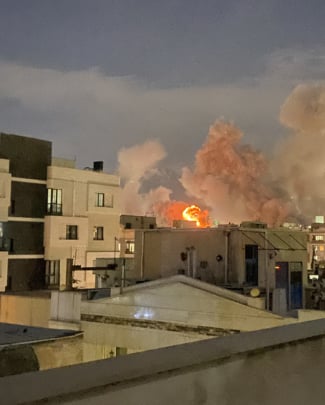THE BATTLE FOR RELIGIOUS LIBERTIES LOOMS AFTER SUPREME COURT RULING
THE BATTLE FOR RELIGIOUS LIBERTIES LOOMS AFTER SUPREME COURT RULING
Justice Neil Gorsuch’s majority opinion in Bostock v. Clayton County, a Supreme Court decision extending employment protections to gay and transgender people, kicks off a new religious liberty battle.
Gorsuch wrote that he foresees a path for religious institutions to fight their way to the Supreme Court as they seek exceptions from new laws granting protections for gay and transgender workers. He pointed specifically to the Religious Freedom Restoration Act, a federal law that prevents government from unnecessarily burdening the practice of religion unless it advances a narrowly tailored, “compelling interest.”
 “Because RFRA operates as a kind of super statute, displacing the normal operation of other federal laws, it might supersede Title VII’s commands in appropriate cases,” Gorsuch wrote, adding that he expects to see future cases where religious employers “raise free exercise arguments that merit careful consideration.”
“Because RFRA operates as a kind of super statute, displacing the normal operation of other federal laws, it might supersede Title VII’s commands in appropriate cases,” Gorsuch wrote, adding that he expects to see future cases where religious employers “raise free exercise arguments that merit careful consideration.”
John Bursch, a senior counsel at the nonprofit law firm Alliance Defending Freedom who argued against transgender protections in Bostock, said that Gorsuch’s note outlines the litigation over transgender issues that will likely unfold for “years to come.”
“Now that they’ve queued up this religious question, you can expect that those conflicts will develop, and eventually, there will be more cases,” he said.
Bursch, who also participated in the arguments for the landmark Obergefell v. Hodges gay marriage case, explained that many of the questions raised by Gorsuch in Bostock are already set to come before the court in the fall in Fulton v. City of Philadelphia.
That case, which will determine whether or not faith-based adoption agencies are required to serve gay and transgender couples, has the capacity to be the “Hobby Lobby for religious liberty,” Bursch said, in reference to a 2014 case in which the Supreme Court extended religious exceptions to closely held corporations defying an Obama-era contraception mandate. If the court hands down a similar opinion in Fulton, Bursch added, it will likely settle a portion of the religious liberty battle that Gorsuch outlined in his Bostock opinion.
“If the Court concludes that the Constitution very broadly protects religious liberty in that context, that will certainly be a signal that the court will recognize those same rights to religious liberty in many other contexts,” Bursch added.
While the court expressed interest in reviewing religious liberty cases after Bostock, many advocates are not optimistic that, based on the way it decided Bostock, they will receive favorable outcomes. Ryan T. Anderson, a senior research fellow at the Heritage Foundation, condemned the decision, noting that it runs contrary to Congress’s repeated reluctance to pass transgender nondiscrimination legislation. Anderson, who was one of the chief opponents of gay marriage, said that the court ignored the biological definition of sex in its decision, an argument also made by Justice Samuel Alito in his dissent.
“The Supreme Court has simply legislated from the bench,” Anderson said in a statement. “This is pure judicial activism.”
The decision, handed down Monday, establishes that Title VII of the 1964 Civil Rights Act protects gay and transgender people from discrimination on the basis of their orientation or gender identity. It revises a previous, commonly held understanding of Title VII, which interprets the protections as applying to people based on their biological sex.
While Gorsuch’s support for protections surprised many, as the justice typically sides with the conservative wing of the court, the way he framed his arguments did not. Gorsuch considers himself a textualist and said during the case’s oral arguments last October that, based on past texts surrounding the Title VII issue, he was “really close, really close” to deciding in their favor.
Gorsuch, Chief Justice John Roberts, and Alito warned at the time that if the court were to decide in favor of protections, it would risk, in Gorsuch’s words, “massive social upheaval.” In his opinion, Gorsuch nods to that observation, especially in the cases of religious employers, many of whom fear the decision may require them “to violate their religious convictions.”
“Worries about how Title VII may intersect with religious liberties are nothing new,” he wrote, before explaining how religious institutions may find shelter within exceptions laid out by Title VII itself and ministerial exceptions designed by the court in Hosanna-Tabor Evangelical Lutheran Church and School v. EEOC, along with the strategy of seeking protection through RFRA.
Alito, in a dissent joined by Justice Clarence Thomas, said that the decision actively threatened religious liberty. Referencing Our Lady of Guadalupe School v. Morrissey-Berru, a case heard this term similar to Hosanna-Tabor, Alito said that he feared the religious freedom of both schools could come under fire. In these cases, religious schools sought protections so that they could hire religion teachers whose lives reflected the tenets of the faith they teach.
(Excerpt from the Washington Examiner. Article by Nicholas Rowan.)
Partner with Us
Intercessors for America is the trusted resource for millions of people across the United States committed to praying for our nation. If you have benefited from IFA's resources and community, please consider joining us as a monthly support partner. As a 501(c)3 organization, it's through your support that all this possible.


We use cookies to ensure that we give you the best experience on our website. If you continue to use this site we will assume that you are happy with it. Privacy Policy




Comments
How can someone , another someone have such a glared view of the consequences of this action. True all people have constitutional rights, but also for the others unalienable rights. The good of all Americans outweigh this decision. This creates problems because of extreme sexual issues. This will infect our nation with more ungodliness. Why didn’t this decision come with boundaries to protect the norm and them. Too bad we can’t wear a mask for this one. Justice G. You were highly acclaimed without hesitation and you have proved yourself to be of bad judgment, promoter of confusion, divided our country further, of little wisdom, and as I expect another Trogan Horse. I do not expect you to have voted along party lines per se, but look whose opinions you sided with. Liberalism has brought us to death by abortion and now cities burned and the structure of law being dismantled. Is that why you wear that robe? Does it mean you want to continue to bring the distraction of moral, by Godly and healthy standards, for the destruction of our nation. Freedom for all is a standard, but also a safe structure derived from laws that protect all of us. Wish you could turn in your robe. What other unwise decisions will you make, you and John Roberts. Have you been bought out or did you just put yourself up for sale? So sorry for many struggles others have and there must be solutions from wisdom’s bench, but this wasn’t one of them, and the children will grow up with
Not growing up knowing right from wrong. How about your girls? You are their father. Be sure you tell your family how you will judge when a crisis arises from this and you will perpetuate the problem.
I can’t help thinking how much time and money it takes to go through any court battle. To be put into the position to have to fight for something faith-based groups should not have to defend under our Constitution, What a travesty.
I was very angry when I heard the decision. These judges have contributed to the moral decay of our nation, Ruth Graham Bell, once said if God doesn’t judge America he owes Sodom and Gomorrah an apology.
I will keep praying for our leaders and our judges one day we will stand before God give an account of everything we have done may God have mercy on us.